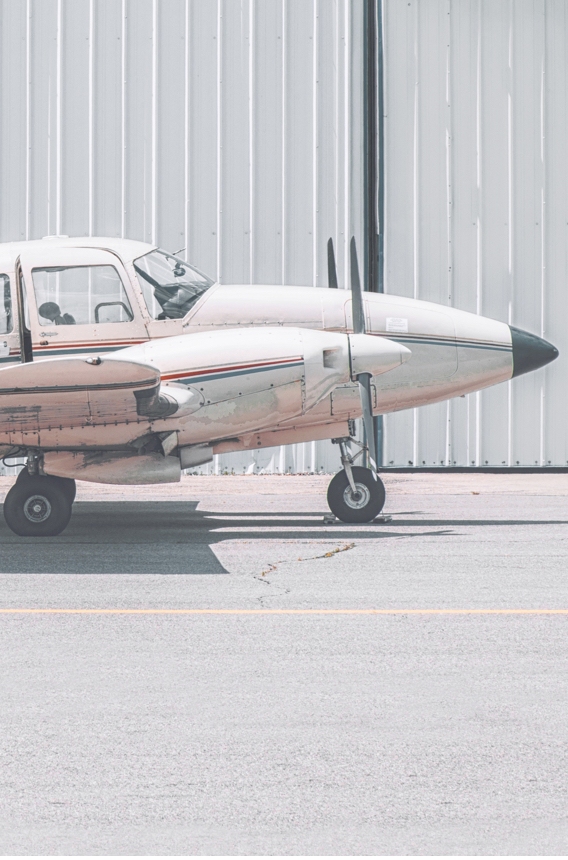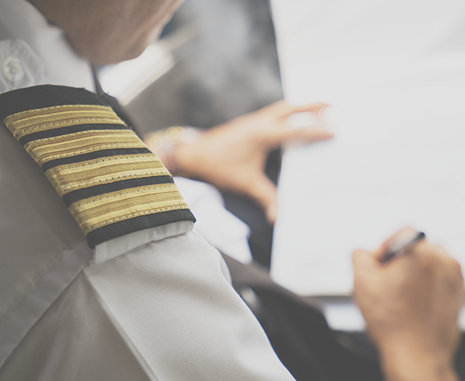Request for a quote

I am a bit worried about placing my aircraft in someone else’s name.
The FAA states in writing that they do not issue title to us. Your name is filed with the FAA as the owner so
you are fully protected.
The FAA specifically tells people that they do not issue certificates of title and that registration is not proof of ownership.
Indeed, on the front of the registration certificate directly to the left of the name of the person or corporation that
an aircraft is register to are the printed words: "Issued to" and to the right of the name it is printed: "This Certificate
is issued for registration purposes only and is not a certificate of title". On the back of your registration card the
very first statement printed on it is: "Effect of Registrations. Title 49 U. S. C. [United States Code] 44103(c)(2)
provides: 'A certificate of registration issued under this section is not evidence of ownership of aircraft...'" Further
we will register your aircraft to International Air Services Inc., Trustee. The FAA will only issue a registration to
a corporation with the word: "Trustee" if an FAA approved Trust is filled with the FAA. The Trust must state who
is the beneficial owner, i.e. Trustor. We submit a statement that the FAA places in your aircraft file that we are not
acting as owner of your aircraft. Therefore your name or your foreign corporation's name will be filed with the
FAA and that will show that you are the owner of your aircraft.
Under United States law, it has been held that the person or company that pays for an aircraft is the owner. The FAA is
well practiced in allowing non-U.S.A. owners to place their aircraft in a U.S.A. Trustee's corporate name with no financial
risk or jeopardy to the non-U.S.A. owner. The only legally way for a non-American to own a FAA register aircraft is through a FAA approved Trust.
For this reason, most buyers of FAA registered aircraft employ the services of a title search company to search the FAA aircraft
files in order to determine the legal owner of an aircraft. We can have this service performed for you. We can research
any liens, mortgages, the number of registered owners, 337s, accidents and damage repair, as this is all required to
be in the aircraft file.
What is my risk if IAS gets into financial difficulties?
Your aircraft is not an asset of the corporation. Every aircraft is registered to: International Air Services Inc., Trustee.
The word "Trustee" is required by the FAA to show that the beneficial owner is the "Trustor", i.e. you, and that the
FAA has the Trust on file showing who is the beneficial owner.
IAS is not a trading company. It was set up only to register aircraft for non-U.S.A. citizens.
Therefore IAS should incur no liabilities which could affect your aircraft.
The Trust Agreement between you and our company is for registration purposes only. You are not passing any kind of legal
ownership interest to us. Under American judicial law wherein we do not take physical delivery of your aircraft or lease
it or schedule flights nor manage it nor have paid for the aircraft, we would have no legal right to the title to your
aircraft or to your physical aircraft nor can any actions of our company encumber your title. You only pass registration
rights to our company, which in and of itself has no monetary value. Your aircraft is therefore not an asset of our
company and cannot be encumbered by our company to a third party.
If you wish to sell your aircraft or wish to discontinue using our company as your Trustee, we will take your instructions
and execute the transfer documents on your instructions.
Why do you offer two types of Trusts?
About half of the FAA airplanes registered outside the United States are in the name of a USA
Trust corporation and about half in individually formed one off corporations. Some Non-
American companies and lawyers advise the public to go in the direction of one company. To
satisfy that market, we offer two types of Trusts. Many people prefer the idea of having just
one airplane in an individual corporate trust.
We can supply you with an individual tailormade U.S.A. corporation. Your aircraft will be the
only aircraft for which that company will act as a Trustee. We will register the U.S.A. Company
at your foreign address if that is what you choose. You may elect to have a choice of a
directorship. You can keep the books and corporate records if you wish. You choose the name
of the U.S.A. Corporation. Some people who own expensive airplanes prefer this type of
corporate strategy.
What kind of experience does your company and its personnel have in dealing with FAA registrations?
Our Directors have been registering aircraft with the FAA for Non-US citizens since 1978.
Originally this service was available by private invitation only. Now this service is available for all
reputable and responsible aircraft owners in most countries.
Our experienced personnel can advise you on every aspect of aircraft ownership from finding
aircraft in the United States, selling your FAA aircraft, ferrying, to placing an EASA registered
aircraft in Europe on to the FAA register, obtaining airworthiness certificates and export
certificates, annual inspections and FAA maintenance. Our advice is free to Trust holders.
I just bought an aircraft in the U.S.A. and I am intending to register it in my own country when I get home. May I fly the aircraft home with the previous owner's registration?
Once an aircraft is sold, the previous owner is required to inform the FAA that he is no longer the owner. After 9/11 a new law was passed. The FAA now requires the registration transfer to be completed before the aircraft can be flown by the new owner. Title 49 United States Code 46306 states that a fine and imprisonment for not more than three years or both is the penalty for both the owner and the pilot should the aircraft be flown before it is registered in the name of the new owner. This also applies to aircraft dealers. Indeed, we have acted on behalf of aircraft manufacturers and dealers who have registered their aircraft with our Trust company in order to fly the aircraft back to their home country.
Do I have to hold an FAA pilot’s license to fly an FAA registered aircraft in the U.K. or Europe?
Absolutely not! Under FAA regulations, specifically US FAR 61.3(a) a pilot need not to hold an
FAA pilot’s license to fly an N-registered aircraft outside the United States. A pilot may operate
an aircraft within a foreign country using a pilot's license issued by that country.
If you are going to America to purchase an aircraft, we can have the Trust Agreement ready for
you before you leave. As soon as you decide on a specific aircraft, just tell us the "N"-number of
the aircraft you have chosen and we will do the rest. It is against FAA law/regulations to fly the
aircraft in the previous owner’s name once your purchase is complete.
Can you give me advice on getting my airplane home from America?
We have extensive transatlantic experience in GA aircraft going back more than thirty years right up to the present. Our advice is free to Trust Holders. In the event that you want your aircraft shipped, we can recommend U.S.A based FAA IA inspectors who have economically containerized and shipped aircraft mainly to Europe.
Your prices are lower than your competitors. Why is that? Does that mean you scrimp somewhere?
We have cut our costs to the bone, yet we provide the same or better service than our competitors. That is the reason we have become one of the larger FAA Trust companies.
What are the advantages of having my aircraft registered with the FAA rather than in Europe with the EASA?
The FAA has told us that there are over 1,000 FAA registered general aviation aircraft based in Europe. That many people
cannot be wrong.
FAA maintenance is far more economical than EASA maintenance and the requirements on pilots are less stringent.
It is relatively easy to obtain an FAA instrument rating compared to an EASA IR. With the FAA You do not need to be re-tested
every six months as you do in EASA countries. Your FAA twin rating does not have a requirement for a minimum yearly
number of flying hours as you would having an EASA license. While an FAA IR or multi pilot’s license is not valid on
an EASA-registered aircraft, it is valid on an "N"-registered aircraft. So that is another good reason to "N" register
your aircraft. British IMC-ratings are not valid in continental Europe, but the FAA IR licenses are valid all around
the world. If you have received flight instruction in an EASA-coutry from an EASA flight instructor, say having had
instrument instruction for your IMC-rating, such flight instruction and hours flown counts towards your FAA-license
as per US FAR 61.41(b).
Standard FAA aircraft Certificate of Airworthiness have no expiration dates. Once your aircraft has a C. of A., the FAA in
Europe does not inspect your GA aircraft. All you need, is having had an annual inspection within the preceding twelve
months, even if the airplane has been out of license or not been flown for years.
There are times when you might not wish to have your aircraft insured. For example, perhaps you only fly in the summer season
or you might have your aircraft in for extensive maintenance or modification. The FAA (unlike the CAA and all EASA aviation
authorities) has no insurance requirements.
What are the advantages in favor of buying or selling an FAA aircraft versus a European registered aircraft?
75% of the world’s aircraft are FAA-registered. You can fly and have an FAA registered aircraft serviced anywhere in the
world. Since there are so many FAA-registered aircraft throughout Europe and the world, when it comes time to sell your
aircraft, you have a wider market for your aircraft. When you wish to purchase an aircraft and require a specific make,
model and equipment, there are more aircraft from which to choose. There are also many FAA-modification STC's available
for your aircraft, that are not available by the EASA. Those that are available by the EASA end up being more costly
to install.
The equipment requirements for an FAA aircraft (e.g. flying IR) are not as stringent as for an EASA aircraft. Many items
have an allowable service life on an EASA aircraft, which is not always the case on the FAA schedule.
There is a reason there are over 1000 FAA GA aircraft in Europe and many more all over the world. It is simply the best and
most economical way to operate an aircraft. Our trust prices are the lowest available, often half or less than that
of our competitors.
The FAA is the only aeronautical agency in the world, whose government mandate is (from the U.S.A. Congress): "To foster
aviation". Therefore you will not get silly, expensive, unnecessary rules coming from some uninformed bureaucrats. You
will get reasonable rules and maintenance schedules so you might safely and economically enjoy aircraft ownership. Join
the FAA and allow International Air Services Inc. the pleasure of serving you!

